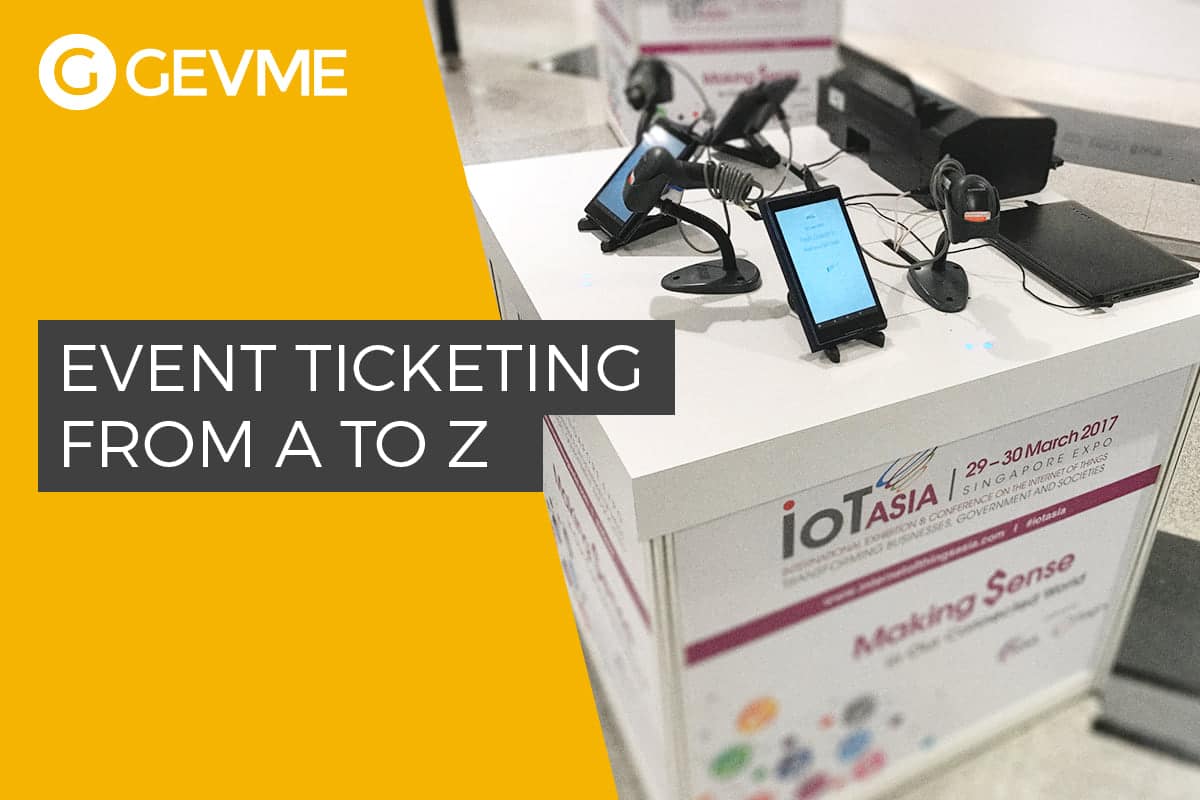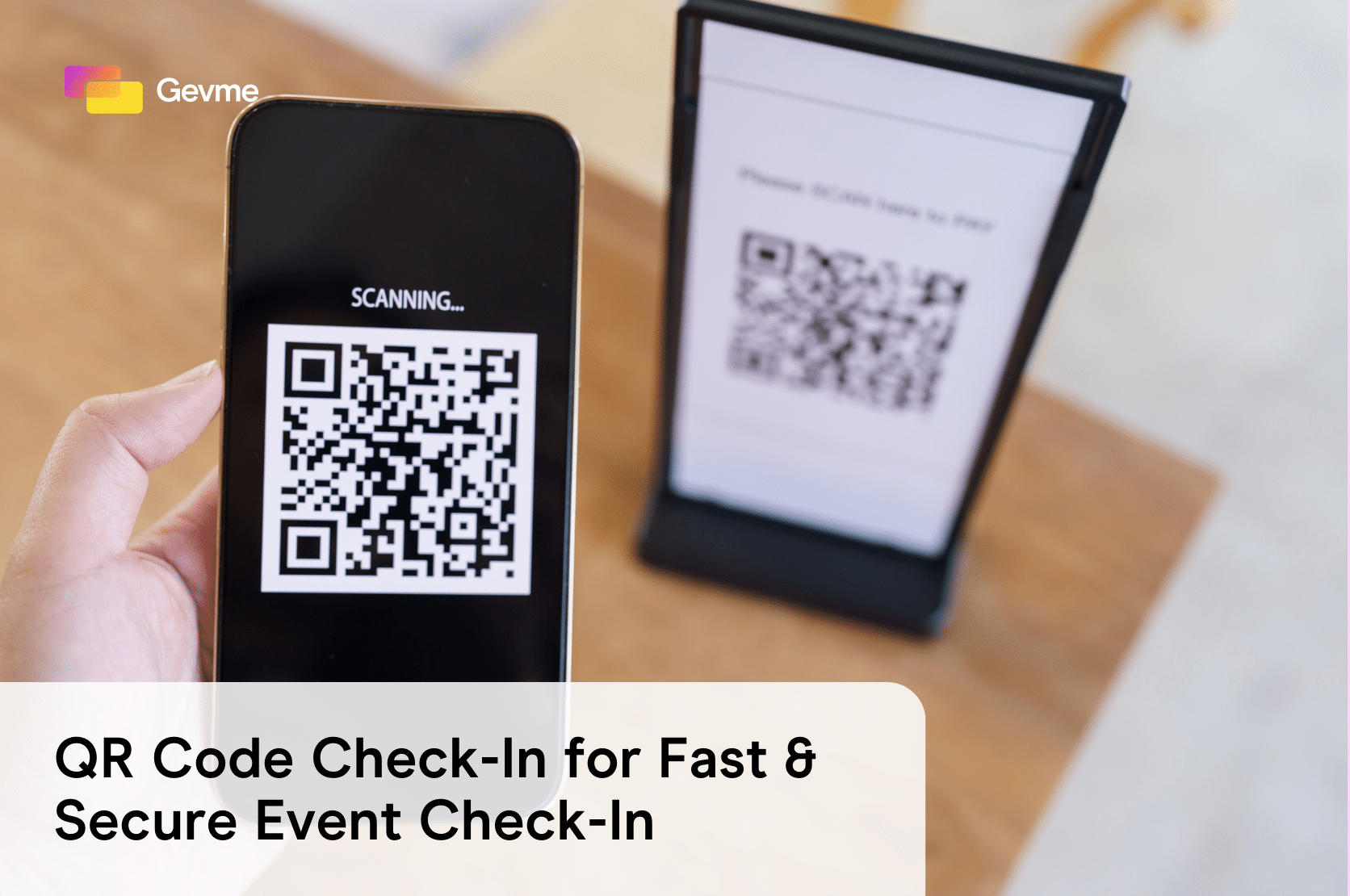If you’ve just crafted a great building named “event”, the first thing to do next would be making a door. Providing the tickets for your event is a crucial part of organizational planning. Challenging as it may sound, event ticketing is something that should really comply with a “one-size-fits-all” principle.
What we mean by this is that outstanding events integrate such ticketing decisions, which will surely meet the expectations of EVERY attendee. Now, is it even possible? – you may be asking yourself. – Not easy, but not impossible, – there’s our answer, kiddo. Go through our tips on ticketing solutions and start working on your master plan for attendees’ encroaching right now.
Definitions of event ticketing
Event ticketing system meaning is easy to comprehend if you approach it as a refrigerator. That’s right, no misspelling here. If you fill your fridge with the products that may be efficiently used for cooking a nutritious breakfast, lunch, and dinner, then everyone using it, will stay healthy and in shape. If your fridge is broken or contains fast food, the result will be quite different, as you can imagine. In this sense, successful event ticketing is the system of integrated solutions, which serves for providing easy access to the event. The key aims of using event ticketing solutions are the following:
- Keeping track of registrations
- Capturing attendees’ contacts
- Automating the process of event entering
- Creating a smooth attendance experiences
Types of event ticketing solutions for profits
Different flavors – one purpose. Event ticketing is fully dedicated to the facilitation of event accessibility, no matter which format it’s presented. For the event planners who want to keep pace with tech innovation, here are two top-notch ticketing platforms of the 21st century:
- Software. Online ticketing software is not simply a service. This is a progressive event management expert that allows running a ticketing campaign in a cloud-based space from any spot, from any device connected to the Internet. The benefits that make a software stand out include advanced customization options and real-time tracking. The main thing: many software solutions align ticketing with other apps like email marketing or onsite registration that were designed in order to let event planners breathe a sigh of relief.
- Website. Selling the tickets on an event ticketing website allows creating the layout for your event presentation from scratch. Use a special branding style, incorporate images, videos or graphs, integrate it with social media platforms and let the campaign hit the “sold out” bar!
Features of event ticketing solutions
Successful platforms for ticketing are like pizzas – all with different toppings and levels of toppings. However, they all have dough and cheese in common. Same with event ticketing systems. Here’re the features that are “total musts” for each solution:
- Ease of use. Remember: sophistication in a ticketing system means the generation of a long list called “registrants who missed out.” Create a platform that is understandable and responsive. This will be the best tool for engagement boost.
- Accessibility. Choose the solution that will allow accessing a platform from any place and device. Again, engagement growth will be a result.
- Multiuser. Your event is the best. No wonder that more than one user at a time will want to get a ticket. Be sure that your platform can be accessed by multiple users simultaneously and increase your sales.
Types of event ticketing tools that you needThe bones of each ticketing system are the tools that are irreplaceable for efficient event organization. Check out some of them:
- Payment. Unless the tickets for your event are free, you have to align a ticketing platform with the feature of payment. Offer several options for online/offline payment and score more chances for success.
- Social media integration. Leverage on social media links to serve as the sources for additional event ticketing promotion, as well as the platforms, where more real-time data on the event may be found.
- Notifications. To leave the space for customization and news announcement, use the ticketing platform with the notifications tool.
How does event ticketing even work?
To comprehend the plan of action for event ticketing process, you’ll need a route on a map that’ll take you to the destination of happy user experience. Here’s how it works:
- An organizer creates the event with all information about the agenda, tickets, and any relevant conditions
- A separate ticketing page with information on ticket types and payment options is adjusted
- An event organizer makes sure that the ticketing page has its unique URL
- A customer selects a ticket on the page and completes payment details
- After the payment has been completed, a user receives an electronic ticket via email
- An organizer receives a notification about the purchased ticket
- It’s possible for the ticketing page admin to go to the dashboard and see the progress on ticket sales, track the process in real time, and compare the data.
Depending on the tools and integrated features, the process may involve some additional steps. However, with this skeleton, you’ll be safe on the part of ticketing.
How to organize event ticketing?
Even if you hold a map in hand, it doesn’t necessarily mean that you’ll reach the destination. To make your ticketing system resonate with the event, as well as your attendees’ expectations, discover the secret of efficient ticketing organization in several steps:
STEP 1. Learn your event by heart.
Adjusting the ticketing system to the event requires knowing each of its aspects, pitfalls, and special requirements. The best strategy for ticket selling is creating different types of tickets, which will vary according to the services involved. For example, if you plan on organizing a post-event networking party, you can offer access to this event portion in the VIP tickets. See? Good knowledge of the event is a must here.
STEP 2. Budget it.
You won’t be able to establish reasonable ticket prices until you find out what your event budget is. Estimate the scopes of the event and make a record of all the expenses. On the basis of budgeting, you’ll find out what income you’ll have to derive from ticket sales.
STEP 3. Let’s get it started.
Your ticketing system set? Great. It’s the right time to start arranging the venue and purchasing everything that you need for the event.
STEP 4. Ask the magnificent Internet for help.
The internet is your ticket sales hustler, so use all its power to your advantage. Get a grip of the opportunities to sell your tickets on social media and magnify on the engagement. Embrace online tools for assistance and make your ticketing productive!
STEP 5. Aaaaaand let the party begin!
Once the tickets are sold out and all is settled on the part of the organization, don’t wait any longer! Start the event and enjoy each part of it.
STEP 6. Don’t spend it all.
If you are a lucky one and managed to get higher income from your ticketing campaign than expected, just act smart about it. A bottle of champagne is fine, but the rest should be put to the bank account and then used, according to plan.
How to set up event ticketing?
Setting up the system of ticketing doesn’t require any coding experience or special knowledge. With the use of an online software, you can simply create the ticket options by selecting the required fields, customizing the forms, according to your needs, and locating the ready-to-use forms on a platform. What can be easier?
How to set prices for event tickets?
Determining your event tickets’ prices is where you have to extract a math genius from yourself and make a real calculation for deducing the most optimal pricing level.
- The first step on this road is not a rocket science: Divide the total cost of the event for the number of attendees expected and you’ll get a ticket price. Don’t hurry to post it on the website, it’s still pretty raw.
- Calculate all unavoidable fees and add them to a ticket price. Are there any software fees to be paid by those who buy event tickets? They are to be counted as well.
- Now add the expenses that are to be spent at the event, including a backup budget for urgent needs, to the total sum.
- Make a new division based on revised data and get the actual price.
Protip: To stay on the safe side, create two types of ticket price calculation: fixed and flexible. A flexible price is going to be a bit higher than the set one, which will help you break even, in case you’re you’ll get fewer registrations than expected. (The flexible price tickets can be then offered as the last-chance entry tickets).
How attendees buy tickets for your event?
As a child of the digital age, you can come up with one and only option here: ONLINE. Indeed, online event management is to be the primary method to use. Create a flexible ticketing system on your platform, provide diverse payment methods, and embed electronic ticketing to showcase your
preference for Internet ticketing solution. However, you never know which values your attendees follow. Maybe there’s no payment method on your platform that would meet their preferences? Also, they just don’t have a set plan in terms of visiting the event? Leave the space for purchasing tickets onsite, in case there are tickets available. This may give you a solid last-minute inflow!
Who finds it helpful?
#1. YOU
If you’re an event organizer or a reseller, a ticketing platform is an integrated solution, where you gather the tickets, track the campaign success and see what further actions should be taken.
Leverage on ticket selling online at least for one reason: it’s easy to distribute. As a person, who strives for boosting ticket sales, you can make use of social media, reseller marketplaces, and other relevant platforms by providing the link to your ticketing page. Hit the “sold out” bar in a blink of an eye!
#2. TEAM
Event ticketing solutions give your team time to concentrate on the crucial aspects of event organization, with tickets being sold autonomously at the same time. Boost the quality of your event through a team work automation.
#3. ACCOUNTANTS
Since ticketing software has an embedded calculation module, your accountants can spare themselves all the efforts involved with costs’ tracking.
#4. BOSS
Gets a great view. Indeed, by providing an access to the event ticketing platform to the head of your project, you spare yourself the need to report on the progress of ticket selling. Your boss will just see everything for himself.
Conclusion
Event ticketing is an entry door to the event. Make sure you make it accessible, easy to open, and good-looking! With the help of an advanced ticketing system like an event software or a website, you’ll hit that “sold out” bar sooner than you expect!
If you have any ideas on how to magnify on the efficiency of a ticketing campaign, you’re welcome to share with us!
Go through event ticketing step by step with GEVME Registration.








